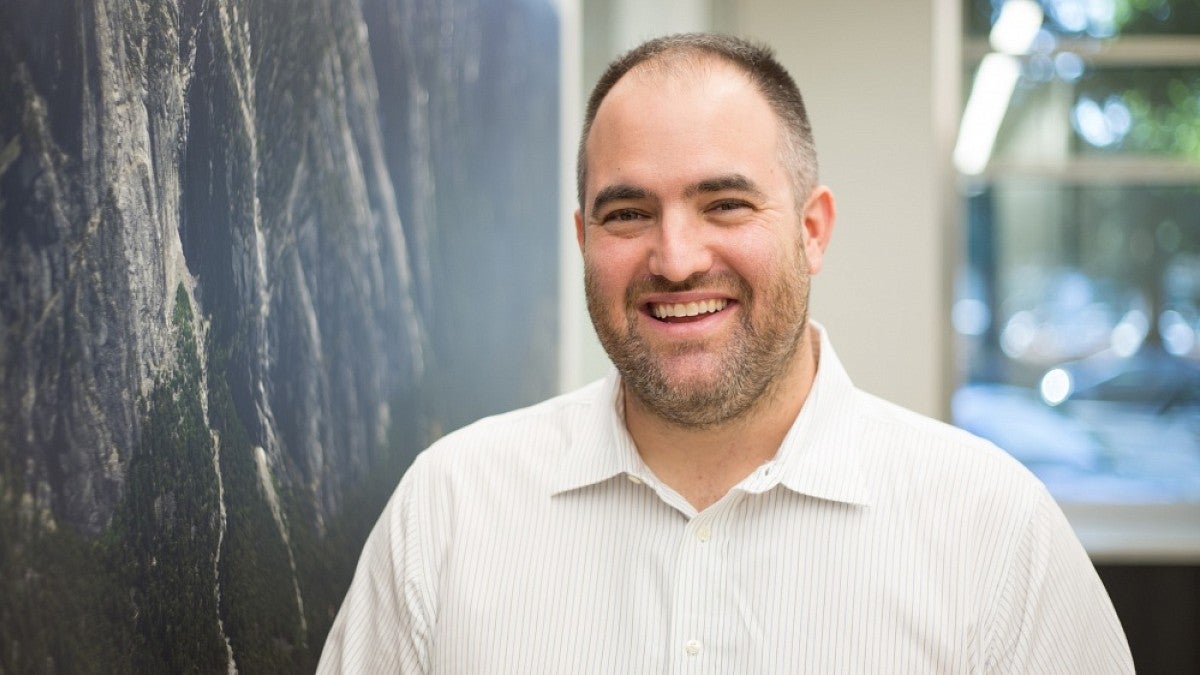A successful recipe for innovation often comes with an unexpected combination of ingredients.
That’s certainly the case with Stephen Gillett’s career as an innovator. Since graduating from the UO in 1998, Gillett has successfully blended gaming, technology and business experiences with lessons learned from his college days, including his time playing football with the Ducks, into leadership roles within some of the nation’s most innovative companies.
Now the chief executive officer and co-founder of Chronicle, an offshoot of Alphabet’s moonshot factory known as X, Gillett returns to the UO on June 4 to give the inaugural Knight Campus Distinguished Lecture. He’ll talk about “Innovation, Leadership and Change."
Gillett’s talk will begin at 6:30 p.m. Monday, June 4, in the Straub Hall auditorium, just southeast of the Erb Memorial Union. Admission is free but advanced registration is recommended. Doors will open at 6 p.m.
Gillett graduated in 1998 with a degree in political science. After a season as an offensive lineman for the Ducks, which reinforced the idea that team sports, like any business, mean being part of a unit and being coachable, Gillett realized the inevitable and left the playing field.
His heart, it turns out, beat for the world of gaming, highlighted recently in Oregon Quarterly, and the technology behind it.
“I was much more interested in this emerging thing called the internet and what ultimately became known as the first dot.com boom,” he said. “I found my passion moving off the field and into technology – the World Wide Web and e-commerce.”
His first step, as a part-time technician at Office Depot helping customers with computer problems, turned out to be a game-changer, mostly thanks to a relationship he built with a man who frequently visited the store seeking answers to basic technology questions.
“He came into the store a lot, never buying anything but always seeking help with his computer and printer. I was nice to him,” Gillett said. “He reminded me of my dad. He’d come in and people in the store would say, ‘there he is Stephen, you should go help him,’ and I did.”
Then one day the frequent visitor went to the store manager’s office, where Gillett was summoned via intercom. The man, Gillett learned, was on the board of directors of a large hospital company in the Pacific Northwest.
“I had never asked him who he was,” Gillett said. “After identifying himself, he told me he was the chief administration officer at a local hospital, and he asked me to be the IT coordinator. He told me that I had a unique talent that he was looking for.”
At age 20, Gillett found himself rearranging his UO class schedule so he could complete his degree and work full time at the hospital, where, after receiving extensive training in networking and security, he worked the help desk and helped integrate the hospital network.
“When I graduated, I had a political science degree and was already a good technology guy with almost two years of hospital IT training,” he said.
He also had gained an insight about human relations that has stuck with him.
“What kinds of decisions do you make when nobody’s looking? How do you engage with people who politically or professionally don’t seem important to you? That one example at Office Depot has paid off tremendously for me,” Gillett said.
After the hospital, Gillett found himself in California’s Silicon Valley and in technology roles with Starbucks, where he was chief information officer; Best Buy, where he was president of digital and global business services; and Symantec, where he was the chief operating officer. He’s been with Chronicle, based in Mountain View, California, since its formation in 2016.
Playing football at the UO and working in businesses undergoing digital transformation, Gillett said, have a common thread: Both are about making things happen behind the scenes to open a hole for others to succeed.
“When you embark on any change or broad initiative, you need to know that success is a near-equal partner to failure,” he said. “The way to make it successful, whether it’s a business, an institution or a personal journey of change, is to have self-reflection and understand your role. When you do that, really good things can happen downstream.”
As an annual event, the Knight Campus Distinguished Lecture Series will bring nationally and internationally recognized science, technology and engineering leaders to the UO to give their perspective on the future of their fields.
The effort to rethink research, science education and innovation through the establishment of the Knight Campus is made possible by a $500 million lead gift from Penny and Phil Knight. The initiative is specifically designed to fast-track scientific discoveries and the process of turning those discoveries into innovations that improve the quality of life for people in Oregon, the nation and beyond. A first building on the campus is slated to open in early 2020.


